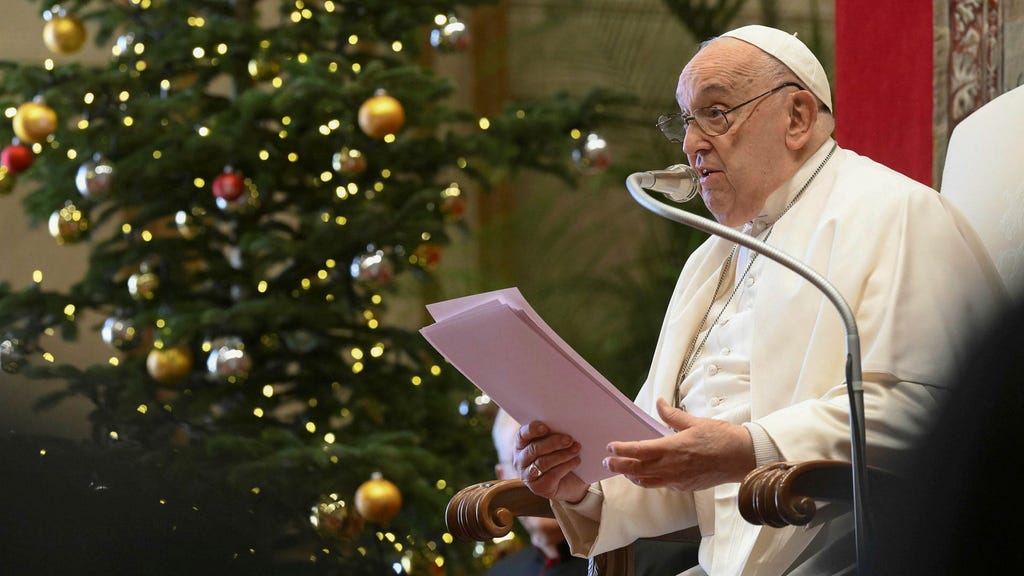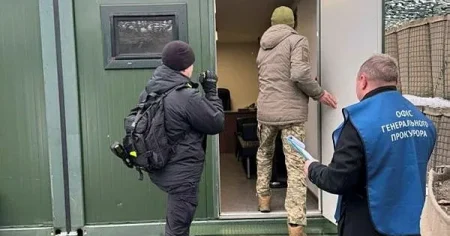Pope Francis’s Christmas address to the Vatican’s Curia, the central administration of the Catholic Church, has become an annual occasion for reflection on the inner workings and potential shortcomings of the institution. This year, the 88-year-old pontiff, battling a cold, focused on the corrosive nature of gossip and backbiting within the Vatican. He condemned gossip as a destructive force that erodes social bonds, darkens hearts, and ultimately achieves nothing, urging the assembled clergy to guard against engaging in such harmful behavior. This theme of internal criticism and self-improvement has become a hallmark of Francis’s papal tenure.
The Pope’s choice to address the issue of gossip directly highlights the persistent challenge of maintaining a healthy and productive work environment within the Vatican. While encouraging open debate and even personal criticism directed at himself, Francis has consistently emphasized the importance of direct communication and transparency. He has urged those with concerns to address them openly and directly rather than resorting to whispers and backroom conversations. This emphasis on forthrightness reflects his broader efforts to foster a culture of accountability and sincerity within the Church.
Francis’s previous Christmas addresses to the Curia have similarly addressed sensitive internal issues. In 2014, for instance, he delivered a scathing critique of the ”spiritual Alzheimer’s” afflicting some within the Vatican, accusing them of pursuing power and wealth at the expense of their spiritual duties. He lamented the hypocrisy of those leading double lives, contrasting their behavior with the joyful service expected of men of God. This pattern of using the Christmas address as an opportunity for candid self-assessment underscores the Pope’s commitment to reforming and revitalizing the Church from within.
The 2023 address targeting gossip suggests a concern with the potential for negativity and division to undermine the Vatican’s mission. By labeling gossip as ”evil,” Francis elevates the issue beyond mere office politics and frames it as a moral failing with far-reaching consequences. This strong language reflects the seriousness with which he views the problem and the urgency of addressing it. In a complex and hierarchical institution like the Vatican, the temptation to engage in gossip can be strong, making the Pope’s call for ethical communication all the more crucial.
Beyond the address to the Curia, Pope Francis also extended Christmas greetings to the Vatican’s lay employees, adopting a markedly different tone. He expressed gratitude for their service and offered warm advice on balancing work and family life, encouraging them to spend quality time with their children and elderly relatives. This shift in tone highlights the Pope’s pastoral sensitivity and his ability to tailor his message to different audiences. While challenging the Curia to confront its internal struggles, he offered words of encouragement and appreciation to the lay staff, recognizing their vital contributions to the functioning of the Vatican.
The contrasting messages delivered by Pope Francis during the Christmas season reveal a nuanced approach to leadership. He demonstrates a willingness to confront difficult issues within the Church hierarchy while simultaneously offering compassion and support to the broader Vatican community. By addressing the issue of gossip head-on, he seeks to promote a more positive and productive environment within the Curia, while his message to the lay staff underscores the importance of family and human connection. This balanced approach exemplifies his ongoing efforts to foster both spiritual renewal and practical well-being within the Vatican.














